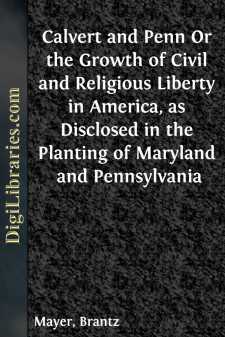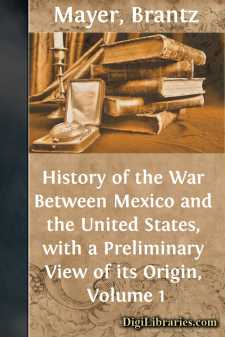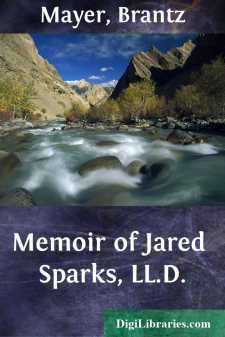Categories
- Antiques & Collectibles 13
- Architecture 36
- Art 48
- Bibles 22
- Biography & Autobiography 813
- Body, Mind & Spirit 142
- Business & Economics 28
- Children's Books 15
- Children's Fiction 12
- Computers 4
- Cooking 94
- Crafts & Hobbies 4
- Drama 346
- Education 46
- Family & Relationships 57
- Fiction 11828
- Games 19
- Gardening 17
- Health & Fitness 34
- History 1377
- House & Home 1
- Humor 147
- Juvenile Fiction 1873
- Juvenile Nonfiction 202
- Language Arts & Disciplines 88
- Law 16
- Literary Collections 686
- Literary Criticism 179
- Mathematics 13
- Medical 41
- Music 40
- Nature 179
- Non-Classifiable 1768
- Performing Arts 7
- Periodicals 1453
- Philosophy 64
- Photography 2
- Poetry 896
- Political Science 203
- Psychology 42
- Reference 154
- Religion 513
- Science 126
- Self-Help 84
- Social Science 81
- Sports & Recreation 34
- Study Aids 3
- Technology & Engineering 59
- Transportation 23
- Travel 463
- True Crime 29
Calvert and Penn Or the Growth of Civil and Religious Liberty in America, as Disclosed in the Planting of Maryland and Pennsylvania
by: Brantz Mayer
Description:
Excerpt
CALVERT AND PENN.
It is a venerable and beautiful rite which commands the Chinese not only to establish in their dwellings a Hall of Ancestors, devoted to memorials of kindred who are dead, but which obliges them, on a certain day of every year, to quit the ordinary toils of life and hasten to the tombs of their Forefathers, where, with mingled services of festivity and worship, they pass the hours in honoring the manes of those whom they have either loved or been taught to respect for their virtues.
This is a wholesome and ennobling exercise of the memory. It teaches neither a blind allegiance to the past, nor a superstitious reverence for individuals; but it is a recognition of the great truth that no man is a mere isolated being in the great chain of humanity, and that, while we are not selfishly independent of the past, so also, by equal affinity, we are connected with and control the fate of those who are to succeed us in the drama of the world.
The Time that merges in Eternity, sinks like a drop in the ocean, but the deeds of that Time, like the drop in the deep, are again exhaled and fitted for new uses; so that although the Time be dead, the acts thereof are immortal—for the achieved action never perishes. That which was wrought, in innocence or wrong, is eternal in its results or influences.
This reflection inculcates a profound lesson of our responsibility. It teaches us the value of assembling to look over the account of the past; to separate the good from the false; to winnow the historical harvest we may have reaped; to survey the heavens, and find our place on the ocean after the storm. And if such conduct is correct in the general concerns of private life, how much more is it proper when we remember the duty we owe to the founders of great principles,—to the founders of great states,—of great states that have grown into great nations! In this aspect the principle rises to a dignity worthy our profoundest respect. History is the garnered treasure of the past, and it is from the glory or shame of that past, that nations, like individuals, take heart for the coming strife, or sink under irresistible discouragement.
Is it not well, then, that we, the people of this large country, divided as we are in separate governments, should assemble, at proper seasons, to celebrate the foundations of our time-honored commonwealths; and, while each state casts its annual tribute on the altar of our country, each should brighten its distinctive symbols, before it merges their glory in that great constellation of American nations, which, in the political night that shrouds the world, is the only guiding sign for unfortunate but hopeful humanity!
When the Reformation in England destroyed the supremacy of the Roman Church, and the Court set the example of a new faith, it may readily be supposed, that the people were sorely taxed when called on to select between the dogmas they had always cherished, and those they were authoritatively summoned to adopt. The age was not one either of free discussion or of printing and publication. Oral arguments, and not printed appeals, were the only means of reaching the uncultivated minds of the masses, and even of a large portion of the illiterate gentry and aristocracy. If we reflect, with what reverence creeds are, even now, traditionally inherited in families, we must be patient with their entailed tenure in the fifteenth and sixteenth centuries. The soul of nations cannot be purged of its ancestral faith by Acts of Parliament. There may be submission to law, external indifference, hypocritical compliance, but, that implicit adoption and correspondent honest action, which flow from conscientious belief, must spring from sources of very different sanctity.
When the world contained only one great Christian Church, the idea of Union betwixt that Church and the State, was not fraught with the disgusts or dangers that now characterize it. There were then no sects. All were agreed on one faith, one ritual, one interpretation of God's law, and one infallible expositor; nor was it, perhaps, improper that this law—thus ecclesiastically expounded and administered in perfect national unity of faith—should be the rule of civil and political, as well as of religious life. Indeed, it is difficult, even now, to separate the ideas; for, inasmuch as God's law is a law of life, and not a mere law of death—inasmuch as it controls all our relations among ourselves and thus defines our practical duty to the Almighty—it is difficult, I repeat, to define wherein the law of man should properly differ from the law of God....




